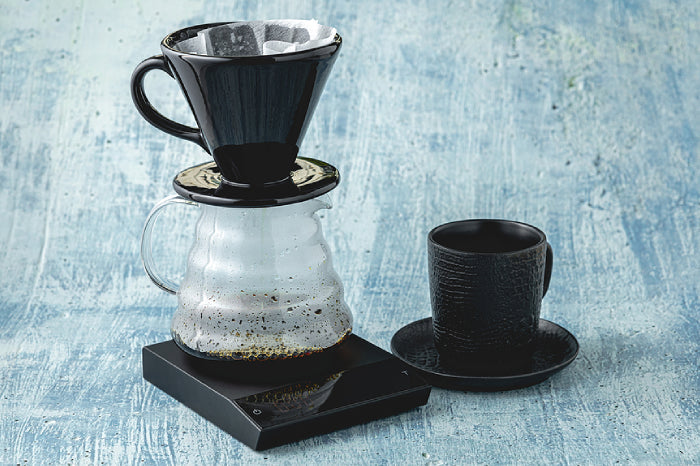Brewing Coffee & The Key Factors To Consider For Your Water

Apart from the coffee beans and brewing process, the water quality can also make the difference between a mediocre batch of coffee and a great tasting one. This often overlooked factor for good-tasting coffee takes the spotlight in this blog post, as we outline why using high-quality water is paramount if you want your cold brew coffee (and any other kind of coffee, for that matter) to turn out delectable.
As you may recall, coffee only requires two ingredients: coffee beans and water. Those passionate about their cup of joe will be careful in their selection of coffee beans, assessing their quality, origin, and whether they are organic. While all that is undoubtedly critical to brewing great coffee, the fact is that brewed coffee is still around 98% water, despite its strong and intense flavour. In short, the water quality ensures you extract just the right amount of flavour every time. Below, we outline the four key factors to keep in mind regarding the water you brew your coffee with.
1. The water must be 100% pure
As mentioned, coffee mainly consists of water, hence the need to be conscious about your water. It should have no discernable taste and must not be distilled entirely. Despite being safe, tap water should not be used if possible as it may seriously affect the taste of your brew. Clear water should also be scrutinised even with its appearance as it could contain unwanted minerals—chlorine, magnesium, calcium, fluoride, etc.—that can also change the flavour of the coffee.
Ideally, use natural spring water as its mineral contents have properties that enable proper extraction during the brewing process.
2. Brew temperature is important
Most automatic drip coffee equipment does not heat up enough, sending slightly cool water through the coffee grinds and typically results in a pot with a slightly sour taste. Nothing can be done to fix the issue except to invest in an SCAA-approved automatic drip pot or a manual coffee maker.
Opting for a stove-top kettle when heating your water for any manual brewing process is recommended. When the kettle starts to whistle, turn off the heat and let it sit for a minute. Doing so enables the water to reach 93-96°C, the ideal temperature for brewing coffee.
3. Water affects brewing equipment
The water used in making your favourite cold brew coffee in Singapore and other coffees affects the brewing equipment's longevity and the elbow grease needed to maintain and clean them. Water that is not pure and contains additional minerals, such as tap water, may lead to residue build-up inside brewers, kettles, and the inside of countertop espresso machines. Hence, soft water (slightly slimy with fewer minerals) or hard water (more residue and minerals) will make cleaning more difficult.
4. Hot water is not just for brewing
When waiting for the coffee to brew, pour some hot water into a cup and let it sit until it is finished. The result is a cup that stays warmer much longer. When using a manual brewing process (Pour over, French press, Chemex), do the same before adding the grinds. Pre-heating the vessel will maintain the coffee's temperature throughout the brewing, enabling proper extraction.
Conclusion
When brewing coffee, water is the unsung hero that gets you the perfect cup to start your mornings right. Hopefully, with the tips we've shared, you can improve your brewing process and, ultimately, the flavour of your favourite coffee.
Besides using good quality ingredients, improving your home brew recipe also entails trying out other types of coffee and expanding your taste palate. In that case, why not give our cold brew coffee a try here at Wake The Crew? We offer cold brew delivery in Singapore that gets you the best-tasting cold brew coffee on the island born from our passion and years of experimentation to bring out the full flavour of our concentrates. Don't hesitate to contact us today to learn more about our products, subscription plans, and other services!

Leave a comment